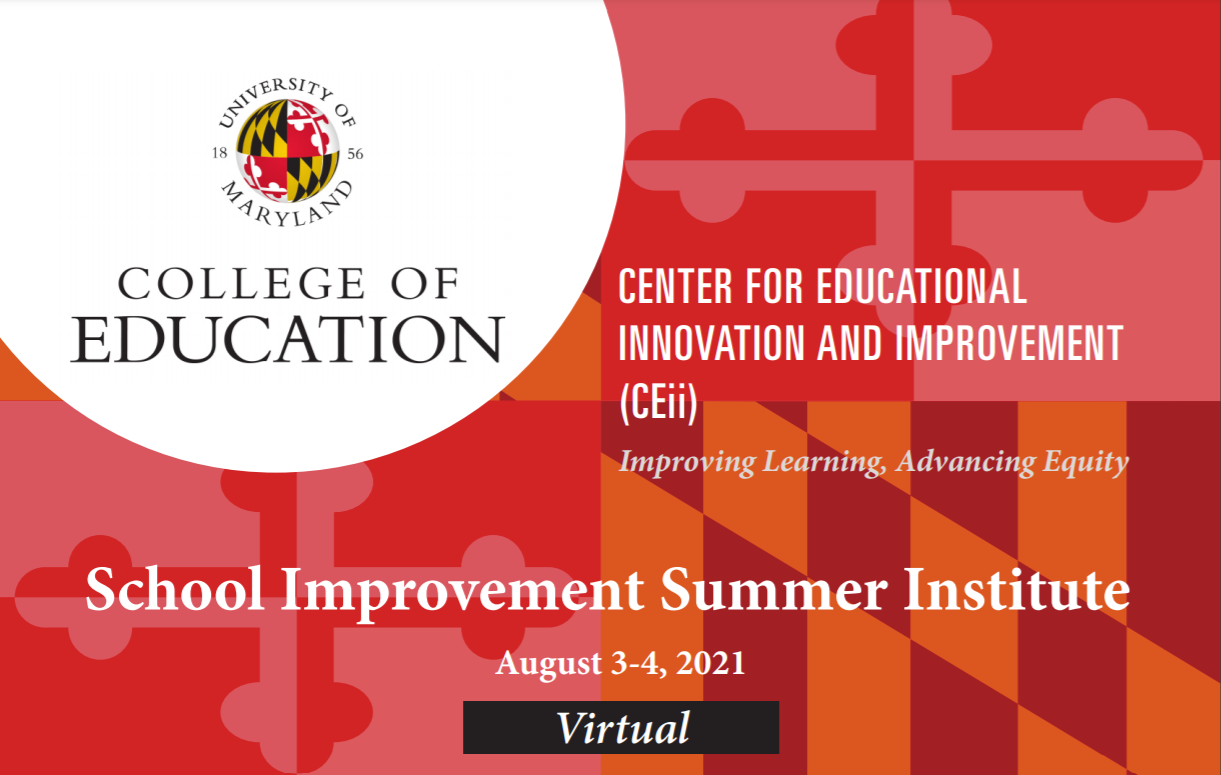
Thank you for attending the 2021 School Improvement Summer Institute!
Learn more about the School Improvement Summer Institute here.
Stay tuned for the dates of the 2022 School Improvement Summer Institute!
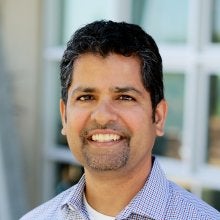
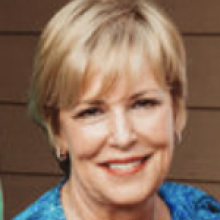
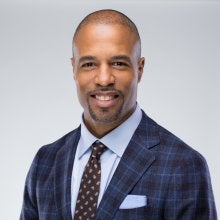
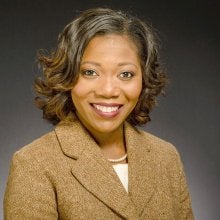
Prior to going to Howard County, Dr. McKnight served as the Director for Secondary Leadership Development Programs in Montgomery County Public Schools. She also served as a Campus Principal Ambassador Fellow for the United States Department of Education in 2016 under the leadership of Secretary of Education John King.
Dr. McKnight was honored as the 2015 Maryland Middle School Principal of the Year by the Maryland Association of Secondary School Principals and as the 2015 Maryland State Principal of the Year by the National Association of Secondary School Principals. She received this honor during her 5th year as the Principal of Ridgeview Middle School in Gaithersburg, MD.
Dr. McKnight’s prior experiences in education include: classroom teacher, English Resource Teacher, Staff Development Teacher, and Assistant Principal. She holds a Bachelor of Science degree in Elementary Education from South Carolina State University in Orangeburg, South Carolina, a Master of Science in Educational Leadership from Bowie State University, Bowie Maryland, and a Doctorate of Education in Educational Leadership and Policy from the University of Maryland, College Park.
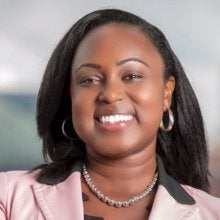
Ms. Booker-Dwyer has had a long history at MSDE, serving as the Executive Director for the Office of Leadership Development and School Improvement from 2017-19, the Department’s ombudsman from 2016-17, and as a career and technology education specialist from 2014-16. She spent almost two years as a program director for the Maryland Business Roundtable after serving for two years as an education program specialist and interim coordinator of MSDE’s Office of STEM initiatives.
Beginning her career as a researcher, Ms. Booker-Dwyer published in the field of neuroscience at the Johns Hopkins University before transitioning to the education sector. She has experience teaching at the middle school, high school, and collegiate levels. Ms. Booker-Dwyer served as a science instructor for UMBC’s Upward Bound program, a teaching assistant in Biology and Developmental biology at the Johns Hopkins University, and as a STEM Program Director and science teacher at the Indian Creek Upper School in Crownsville, MD.
Ms. Booker-Dwyer received her bachelor of science degree in biology from Lincoln University, and a master of science degree in biology from the Johns Hopkins University. She also holds a graduate certificate in school administration and supervision from Johns Hopkins.
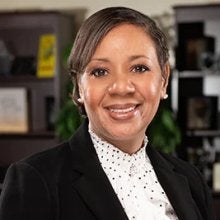
She previously served as Deputy Superintendent of Teaching and Learning where she led a team that supported schools in the areas of curriculum and instruction, special education, testing, college and career readiness, and student services.
A product of the county schools, Dr. Goldson has spent her entire 29-year career in PGCPS, steadily climbing the ranks from the classroom to district leadership. She began her career at Suitland High School with long-term plans to become an actuary. Within weeks, she knew that education was her true calling. Two years later, she was promoted to Mathematics Instructional Specialist where she provided assistance to targeted schools across the system. She also observed and assisted more than 200 secondary teachers with classroom instruction.
Dr. Goldson later served as assistant principal of Forestville and Frederick Douglass high schools and principal of Frederick Douglass and Dr. Henry A. Wise Jr. high schools. As the founding principal at Wise, she partnered with Prince George’s Community College to launch a dual enrollment program and oversaw a 182-point increase in SAT scores. As Associate Superintendent for High Schools, Dr. Goldson worked to increase principals’ leadership capacity and helped develop action plans to improve student achievement while monitoring more than $5 million in federal grants.
Dr. Goldson believes in creating experiences that propel students to their highest levels of excellence. She increased student access to dual enrollment college credit years before state legislation granted free access to such programs. She oversaw higher passing rates on Advanced Placement exams, which gained PGCPS national recognition from The College Board. Most recently, she created a process to enhance access for all eighth-grade students to the county’s premier specialty program, Science and Technology.
As Chief Operating Officer, she managed major divisions and offices, including Student Services, Information Technology, Supporting Services, Business Management and Pupil Accounting and School Boundaries. In this role, she developed and implemented policies and strategies related to service delivery and collaborated with staff to improve organizational efficiency and effectiveness. She also served as a board member for the Prince George’s County Government’s Transforming Neighborhood Initiative @ Schools team. This initiative focused on improving schools in five neighborhoods with significant economic, health, public safety and educational challenges.
Dr. Goldson currently sits on the board of directors for Nonprofit Prince George’s and Prince George’s Chamber of Commerce. A graduate of Leadership Greater Washington, she has been named to “The Most Powerful Women in Washington” list by Washingtonian and honored by the Washington Business Journal with a “Women Who Mean Business” award.
Dr. Goldson is a three-time graduate of historically Black colleges and universities with a bachelor’s degree in Mathematics from Florida A&M University, a master’s degree in Elementary and Secondary School Administration from Bowie State University, and a doctorate in Educational Administration and Policy from Howard University. Prior to becoming CEO, she served as an adjunct professor at The George Washington University, Howard University and Morgan State University. Dr. Goldson is the proud parent of two adult sons: a recent graduate from Savannah College of Arts and Design and another who attends Virginia Commonwealth University.
DAY 1 | August 3 - The IMPROVEMENT LEADER |
|---|---|
Morning General Session 9:00 - 10:30am |
|
Morning Workshops 10:45am - noon |
|
| LUNCH | |
Afternoon World Cafe 1:00 - 2:00pm |
|
| DAY 2 | AUGUST 4 - THE Equity-centered LEADER |
|---|---|
Morning General Session 9:00 - 10:30am |
|
Morning Workshops 10:45am - noon |
|
Lunch Keynote Session 12:15 - 1:30pm |
|
Afternoon World Cafe 1:40 - 2:40pm |
|
Closing Session 2:40 - 3:00pm |
|
Purpose of the Summer Institute:
The primary responsibility of an effective leader is to help their organization improve. The Center for Educational Innovation and Improvement’s School Improvement Summer Institute (SISI) is designed for school and district leaders who know that despite the challenges their schools and communities face, they can make a positive difference in the lives of the students they serve. The SISI will engage school system leaders from across the state of Maryland in a collaborative and intensive two-day experience centered on the following themes:
- Equity: Most of our schools toughest problems center on the inequitable results we are getting from our students. Effective leaders must understand how equity and inequity persist in their unique school environments and create the culture and climate necessary to address them.
- Improvement: The students in our schools today can’t wait for a new education policy or massive new funding that is always promised but rarely delivered. Effective leaders must develop and design strategies to improve the quality of teaching and learning - and in turn student outcomes, with the systems, resources, and staffing available to them.
- Leadership: Having a formal role of authority in a school or school system does not make one a “leader”. Effective leaders are constantly developing their own leadership capacity and, more importantly, developing and distributing leadership across the organization.
Institute Objectives:
- Inform and/or deepen participants’ ability to use data, evidence, and community feedback to understand and address how and why we continue to produce inequitable outcomes for students based on characteristics other than talent and ability. Tools such as Equity Audits and Empathy Interviews will be shared.
- Inform and/or deepen participants’ ability to engage in the disciplined inquiry necessary to understand and address the toughest challenges that impede student learning. The tools of Improvement Science will be introduced and explored, including Causal Systems Analysis, Theories of Change/Improvement, and Plan, Do, Study, Act cycles of improvement.
- Inform and/or deepen participants’ understanding of their own unique leadership capabilities and how to develop as an equity-centered improvement leader.
Dr. Douglas Anthony, Senior Fellow, Center for Educational Innovation and Improvement, University of Maryland, College Park
Dr. Douglas W. Anthony currently serves as a consultant for education leadership with several organizations including the Wallace Foundation, The New York City Leadership Academy, and Policy Studies Associates. Doug most recently served as the Associate Superintendent of Talent Development for Prince George’s County Public Schools, one of the largest school districts in the country. He now leads the Anthony Consulting Group. Doug served in a variety of roles - teacher, central office staff developer, assistant principal, principal, director of human capital management, acting chief of human resources and executive director - throughout his 28-year career dedicated to public education. Doug is recognized nationally for his experience and expertise in the areas of organizational culture, leadership development and pipelines, university partnerships, and private and federal grants. He is the Senior Fellow at the Center of Education Innovation and Improvement, College of Education at the University of Maryland. Doug is a “Tri-Terrapin” having earned his Bachelors’, Master’s and Doctorate degrees from the University of Maryland, College Park.
Iris Bond-Gill, Senior Consultant, Center for Educational Innovation and Improvement, University of Maryland, College Park
Iris Bond Gill is a Senior Consultant at the Center for Educational Innovation and Improvement at the University of Maryland, College Park. She brings more than 20 years of education policy and management experience to the table to propel agencies and nonprofit organizations to deliver on their missions. Most recently, Bond Gill led development and implementation of a successful three-year digital literacy and web literacy program at the Mozilla Foundation. Prior to this, Bond Gill was Assistant Superintendent of Elementary and Secondary Education for the D.C. Office of the State Superintendent of Education, where she oversaw federal programs, served as a member of the Superintendent’s leadership cabinet, and liaised with other education leaders and local elected officials. Between 2002 and 2012, Iris worked in Washington, DC-based policy and advocacy organizations focused on secondary school reform, school improvement, and education and youth policy. Bond Gill has a Master’s degree from the H. John Heinz School of Public Policy and Management at Carnegie Mellon University and a Bachelor of Science degree from Arizona State University.
Dr. David Eddy-Spicer, Professor of Education, Department of Leadership, Foundations, and Policy. School of Education and Human Development, University of Virginia
David Eddy-Spicer is a professor of educational leadership in the department of Leadership, Foundations, and Social Policy at the School of Education and Human Development, University of Virginia. He designs and teaches courses and workshops on improvement science and continuous improvement to aspiring and advanced educational leaders in Virginia and nationally. As a member of the Carnegie National Faculty, he has been recognized by Carnegie Foundation for the Advancement of Learning for contributions to expanding the teaching and learning of improvement science and continuous improvement. His research interests include continuous improvement and the adaptive integration of instructional innovation through partnerships between universities and school systems. He has expertise in program evaluation, case study research, and the design and evaluation of innovative professional learning environments internationally. He has authored or co-authored a wide range of major reports, book chapters, journal articles, and case studies on the diffusion of innovation, professional learning, and organizational change in the public sector.
Dr. Segun Eubanks, Professor of Practice and Director, Center for Educational Innovation and Improvement, University of Maryland, College Park
Dr. Segun Eubanks is the Director of the Center for Educational Innovation and Improvement and Visiting Professor at the University of Maryland, College Park (UMD). Eubanks also served over five years as the Chair of the Board of Education for Prince George’s County Public Schools (PGCPS), a 132,000- student school district bordering Washington, DC. In September 2017, Eubanks became a Senior Fellow at the Center for Teaching Quality. Prior to joining UMD, Eubanks worked in various leadership roles at the National Education Association, including as Director of Teacher Quality and Director of Professional Educator Support. In these roles, Eubanks led major policy initiatives and programs such as the Teacher Leadership Initiative, the Teacher Residency Taskforce, the National Commission on Effective Teachers and Teaching and the NEA’s Committee on Professional Standards and Practice. Eubanks is a staunch advocate for public education and expert in teacher quality, teacher diversity and teacher professionalism. He has served in various leadership roles with national non-profit education organizations including as Executive Director of the Community Teachers Institute and Vice President of Recruiting New Teachers, Inc. Eubanks earned a Bachelor of Arts degree in Educational Advocacy from the University of Massachusetts at Amherst, a Master of Science degree in Human Services Administration from Springfield College, and a Doctorate of Education in Teaching and Learning Policy from the University of Maryland, College Park.
Dr. Shawn Joseph Co-Director, Urban Superintendent Academy and Assistant Professor, Howard University
Dr. Shawn Joseph’s passion for equity and social justice has led him to serve in a number of positions in the world of education. He has been an English teacher, reading specialist, school administrator, central office administrator, and superintendent in Delaware (Seaford School District) and Tennessee (Metro Nashville Public Schools). He served on the faculty of Fordham University in the Department of Educational Leadership, Administration, and Policy during the 2019-2020 school year and is currently Co-Director of the AASA/Howard Urban Superintendent Academy and Assistant Professor of Educational Leadership, Administration, and Policy Studies at Howard University.
In 2009, Dr. Joseph was honored by his peers as the National Association of Secondary School Administrator’s Met-Life Middle School Principal of the year for the State of Maryland. In 2010, Dr. Joseph was the recipient of the American Educational Research Association’s Outstanding Dissertation Award in the area of Educational Leadership. In 2019 and 2020, Dr. Joseph was selected as the Person of the Year by the Tribune Newspaper in Nashville. His first book, The Principal’s Guide to the First 100 Days of the School Year: Creating Instructional Momentum, offers insight into the complexity of the principalship and suggests strategies for focusing on increasing student achievement. In 2019, he published the book Finding the Joseph Within, a memoir which tells the account of his professional journey and how faith and perseverance unleashed favor upon his life.
Dr. Kevin Maxwell, Education Consultant and former Superintendent
Dr. Maxwell began his career 40 years ago as a Prince George’s County high school teacher. He became an assistant principal, middle school and high school principal and returned before retiring as Superintendent there. He also led Anne Arundel County Public Schools for seven years. During his tenure in AACPS, he was named Maryland Superintendent of the Year and a finalist for National Superintendent of the Year. Prior to joining Anne Arundel County, he was an administrator for Montgomery County Public Schools.
Dr. Maxwell is a leading authority on arts integration, language immersion and environmental literacy. Under his leadership, PGCPS significantly increased student enrollment, expanded access to full-day prekindergarten, and enhanced dual enrollment programs and specialty offerings. Throughout his career, he focused on raising student achievement, increasing academic rigor and engaging school communities.
Dr. Maxwell’s children – three daughters and one son – are all graduates of Maryland public schools. His hobbies include reading and traveling. He and his wife Nancy live in Bowie.
Dr. Jean Snell, Senior Faculty Specialist and Associate Director, Center for Educational Innovation and Improvement, University of Maryland, College Park
Dr. Jean Snell is the Associate Director of the Center for Educational Innovation and Improvement at the University of Maryland. Over the last twenty years, Snell has engaged with educators to help develop their capacity to close the achievement gap and to foster high quality teaching and learning conditions for all students. As an independent educational consultant, Snell provided leadership coaching to school and teacher leaders and qualitative data evaluation services to school and program administrators. Snell has served as a certified Lead Inspector with Teacher Prep Inspection (TPI-US), a curriculum developer and teacher trainer for Educators Rising, a classroom evaluator for the DC Public Charter School Board, and a Leadership Coach with Ed Fuel and Leading Educators. Previously, she launched the Leading Educators teacher leadership Fellowship program in Washington, DC as the Regional Executive Director, directed the Maryland Master’s Certification program at University of Maryland, and served as one of the founding Program Directors for the Center for Educational Leadership at the University of Washington. Snell earned her Doctorate in Education Policy at the University of Washington as well as the Danforth Leadership school administrator credential. She began her career in education as a secondary English teacher.
Dr. Stephanie Timmons-Brown Assistant Clinical Faculty and Director, Maryland Institute for Minority Achievement and Urban Education, College of Education, University of Maryland College Park
Stephanie Timmons Brown is the executive director of the Maryland Institute for Minority Achievement and Urban Education (MIMAUE) and senior faculty research associate in the College of Education at the University of Maryland College Park. She has served as the PI or co-PI on several grants, including two NSF grants, one NIH research grant, one NSA grant, and several state grants. She has developed, implemented, and studied educational programs designed to transition underrepresented minority students into college, with a particular emphasis on STEM-related college majors and careers. Over the past twelve years and through genuine partnerships, she has worked with multiple Prince George’s County and Baltimore City schools to develop programs to help underserved students realize their academic potential and embrace their academic identities. She also mentors and advises several undergraduate and graduate students, advising students on academic courses, their research, and academic integration. Her research interests include understanding effective strategies to increase the college awareness of underrepresented minority (URM) middle school and high school students, to help underserved minority students persist and graduate from higher education institutions, and to understand how URM parents’ use their social capital to help their students navigate the college application process. Dr. Timmons Brown holds a B.S. from the University of California Berkeley and a Ph.D. in educational policy from the University of Virginia.
Dr. Bridget Turner-Kelly, Associate Professor, College of Education, University of Maryland, College Park
Dr. Kelly is Associate Professor and Graduate Program Director of the Higher Education, Student Affairs, and International Education Policy Program. Dr. Kelly is also Diversity Officer and Chair of the Council on Racial Equity and Justice in the College of Education at the University of Maryland. She earned her master’s and PhD degrees in Social Foundations of Education also from the University of Maryland. Her research interests are examining university campus cultures for racial, gender, and educational equity. Her scholarship focuses on documenting the journeys of women and People of Color in historically White research institutions, preparing socially just educators, and understanding how power is negotiated in qualitative research. She has authored over 40 publications, including, two articles that have received over 200 citations each and have been cited in AMICUS briefs for U.S. Supreme Court cases. Dr. Kelly is an award-winning teacher of intergroup dialogue and presents nationally on the topic. She serves on the editorial board of the Journal of Diversity in Higher Education and as Executive Editor for the Journal of Student Affairs, Research and Practice. Dr. Kelly is co-editor of Building Mentorship Networks to Support Black Women: A Guide to Succeeding in the Academy (forthcoming, Routledge).
Dr. Sam Viano, Assistant Professor, College of Education and Human Development, George Mason University
Dr. Samantha Viano is a faculty member in the School of Education in the College of Education and Human Development at George Mason University. She joined the Mason faculty after completing her doctoral studies at Peabody College, Vanderbilt University. She holds a Master of Science in Education degree from Northwestern University and earned a BS in Mathematics from Haverford College.
Dr. Viano's research agenda focuses on systemic challenges in K-12 schools and the solutions schools select to address these challenges, with the dual goals of contextualizing the nature of these challenges and evaluating the effects of these solutions on traditionally marginalized/minoritized students and their teachers. Specific research strands that fall within this agenda include improvement science-driven school improvement, race/ethnicity measurement, school safety and security, school resource officers, exclusionary discipline, teacher mobility, and online credit recovery. Dr. Viano teaches courses on integrating research and improvement science into school improvement as well as on the social context of education leadership.
Dr. Tinkhani White, Director of School Improvement, Chesterfield County Public Schools
Tinkhani Ushe White serves as the Director of School Improvement for Chesterfield County Public Schools in Virginia. A former high-school mathematics teacher, she has been in education for over 20 years having taught everything from 7th-grade mathematics to pre-calculus, mostly in schools considered “challenged”. Perhaps her most rewarding position was serving as a high school principal. Her main interests are in how continuous improvement and improvement science principles can support the work of equity, educational access, and opportunity. This has led to serving in an adjunct capacity at UVA, Virginia Tech, and Longwood University, with a focus on leadership development. Tinkhani is also a member of the Carnegie Foundation for the Advancement of Teaching Improvement Leadership Education and Development (iLEAD) Steering Committee. When she is not spending time with her family, Tinkhani likes to dance, crochet, and participate in activities in her church.
Dr. Paige Whitlock, Secondary Language Arts Coordinator, Fairfax County Public Schools
Dr. Paige Whitlock is a teacher leader whose current role as Secondary Language Arts Coordinator includes leading the curriculum development and professional learning for over 800 middle school and high school English teachers in Fairfax County Public Schools and supporting the Secondary Literacy Project which provides professional learning and networking in disciplinary literacy to 58 FCPS secondary schools. Dr. Whitlock has taught middle and high school English in seven states and has held administrative positions in two high schools and central office. Dr. Whitlock earned a BA in English from Drake University, a Master in Education Leadership from the University of Missouri – St. Louis and an Ed.D. in Educational Leadership and Policy Studies from Virginia Polytechnic Institute and State University. Her passion for Improvement Science is woven into the standard operating procedures of the project teams, leaders, and teachers she serves.